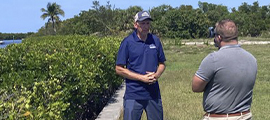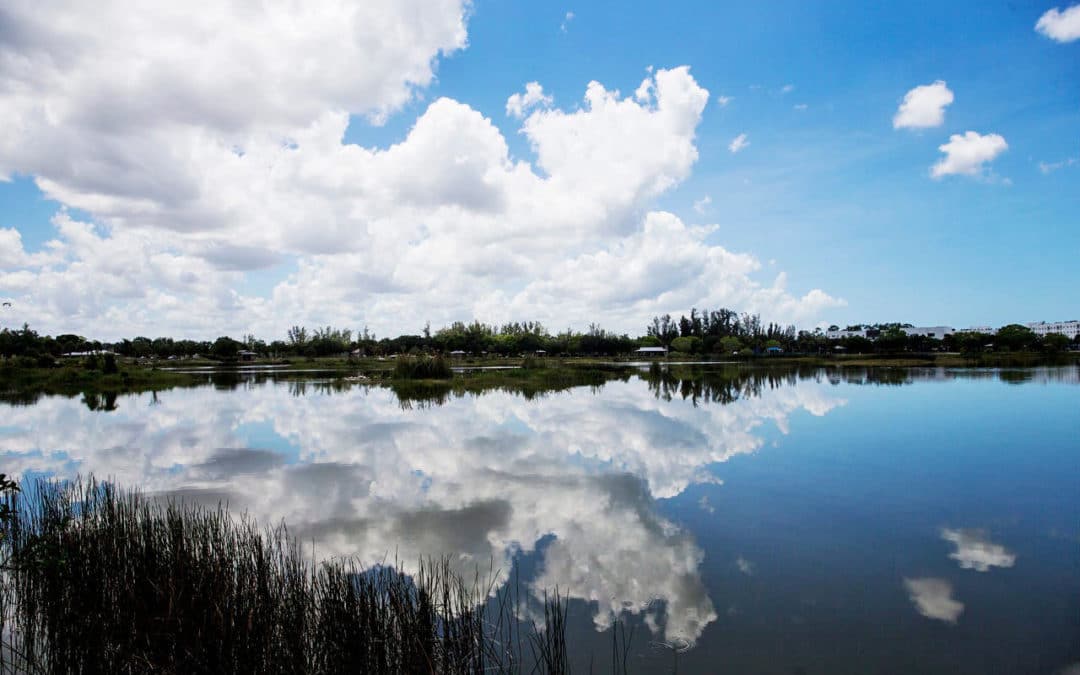The recent traveling PR campaign by Colonel Kelly of the ACOE (Army Corps of Engineers) to field concerns about the LOSOM plan for regulating Lake Okeechobee was quite an interesting process on narrow points of view. The local government reps were lamenting sending more polluted water from Lake Okeechobee as part of the Colonel’s proposed Lake Schedule. If the water was “clean” or even less toxic, I doubt there would be as much concern.
I am curious if any of those finger-waving about LOSOM were connecting the dots about root causes and perhaps their own role as policy makers regarding water quality decline?
The underlying problem, often the elephant in the room at meetings about the economy, tourism and home sales, is that special interest groups and the policy makers they enable have largely surrendered to the juggernaut of uncontrolled growth despite claiming otherwise. The impact Florida’s growth machine has on water quality and public health is undeniable. Water quality impairment of Florida’s waters is widespread and increasing.
Declining water quality and the algae blooms that result have become a dilemma that will take genuine political will to fix. However, our state representatives and others policy makers have sealed the deal with polluters while promoting the charade that we are all working together to fix these problems. In this case, those working together best are the fast growth special interests and our legislators.
It’s been a slick process with all the brotherly teamwork messaging but recent legislation paints a different picture. Once again, the legislature has doubled down on private property rights with language mandated for each local government comprehensive plan making it harder to deny any proposal for new development. After all, who could be against private property rights? This well thought out strategy conveniently provides political cover for the party faithful who now say we have no basis to deny rampant and destructive growth while claiming they are doing their best and working together to manage water pollution.
More directly, legislators have shuffled the deck with agency rules centralizing decision making in Tallahassee. Legislators made sure the South Florida Water Management District (SFWMD) no longer has regulatory authority over agricultural pollution in its 16-county jurisdiction, including the agriculturally dominated Lake Okeechobee watershed, now assigned to the Florida Department of Environmental Protection (FDEP).
Similarly, agricultural practices are not enforced by the Florida Department of Agriculture and Consumer Services, but by FDEP which has now also taken over federal wetlands permitting in the state. And, I guess it’s just a good will gesture from our lawmakers allowing agriculture to lease over 25,000 acres of SFWMD publicly owned land that might otherwise have been part of water storage and treatment to improve water quality and benefit the public interest.
It wasn’t that long ago that the state agencies and water management districts could initiate rulemaking to directly manage problems but now they can’t hiccup without a nod from the legislature.
The majority party has so dominated policy over the years that legislation meant to benefit the overall public interest does not stand a chance when offered from the political minority. It’s a politically self-serving process that depends largely on false narratives about progress, arguably stemming from special interest influence and campaign finance.
There is even an expectation for taxpayers to thank those politicians that want to spend more of your money to fix problems their policies continue to create. Problems resulting from lack of enforcement on rules that manage growth and are meant to sustain our water resources and build strong communities. The charade becomes more evident with each passing year as more waters are added to the impaired list and fewer are being restored.
A new approach for addressing this problem is the Right To Clean Water proposal to amend the state constitution, creating a basis for protecting Florida waters that cannot be preempted by the state legislature.
Creation of rights-based protection offers an additional, effective means of enforcement when legislative and regulatory decision makers fail us and our waterways by providing all Floridians with the legal standing to tackle pollution at the source. This, stopping pollution at the source, is the answer.
You can make it happen by visiting FL5.org to consider signing the petition.
Read on News-Press.com

























